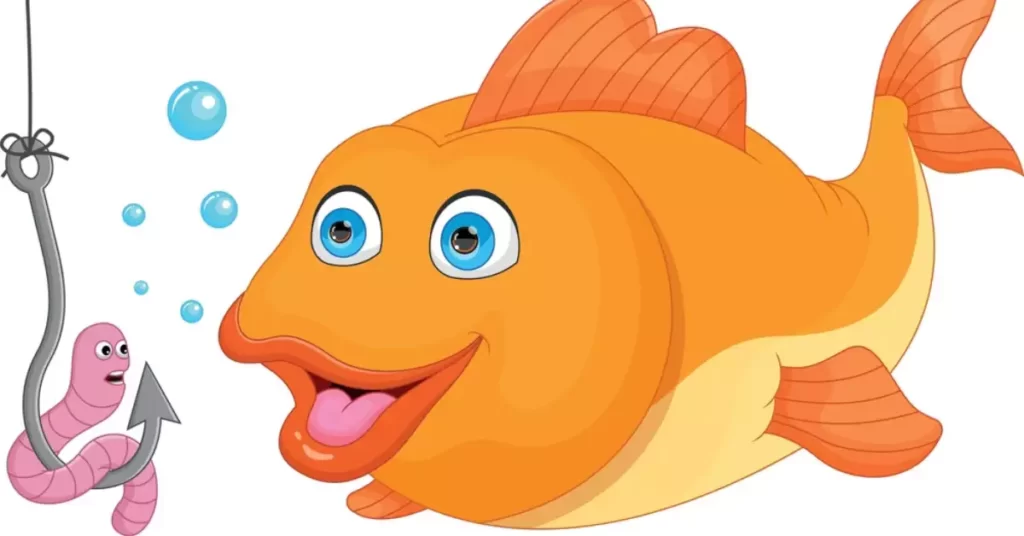Fishing enthusiasts often look for the best bait to enhance their chances of a successful catch.
In recent years, the use of earthworms in sea fishing has gained attention, raising questions about their effectiveness.
In this article, we’ll discuss the merits of using earthworms as bait for sea fishing, along with alternative options and tips for a successful fishing trip.
Earthworms as Bait: A General Overview
The Popularity of Earthworms in Freshwater Fishing
Earthworms have long been a popular choice of bait in freshwater fishing. Their wriggling movement and scent attract various fish species such as bass, trout, and catfish.
This natural and cost-effective bait is readily available, making it an ideal option for many anglers.
Can Earthworms Be Used in Sea Fishing?
While earthworms are a popular choice in freshwater fishing, their suitability for sea fishing is less clear.
However, some anglers have reported success when using earthworms as bait for saltwater fish species.
The following sections will explore the advantages and challenges of using earthworms in sea fishing.
Benefits of Using Earthworms for Sea Fishing
Attracting a Wide Range of Fish Species
Earthworms can attract various saltwater fish species, including sea bass, flounder, and redfish. Their natural scent and movement in the water can entice fish to bite, making them a versatile bait option.
Cost-Effectiveness
One of the main advantages of using earthworms as bait is their cost-effectiveness. They are usually cheaper than other types of bait, and can often be found in your own backyard or purchased in bulk at low prices.
Challenges of Using Earthworms for Sea Fishing
Durability
The main challenge when using earthworms in sea fishing is their durability. Saltwater can cause them to disintegrate quickly, reducing their effectiveness.
Additionally, the wriggling movement that makes them so attractive to fish may be lost once they begin to break down.
Predation by Unwanted Species
Using earthworms as bait can attract unwanted fish species such as small baitfish and crabs.
These creatures may steal the bait without getting caught, leading to a frustrating fishing experience.

Alternative Bait Options for Sea Fishing
Life or Frozen Shrimp
Shrimp is a popular and effective bait option for many saltwater fish species. They can be purchased live or frozen and are often more durable than earthworms in saltwater environments.
Squid and Cut Bait
Squid and cut bait, such as fish chunks or strips, are also suitable alternatives for sea fishing. These baits are more resistant to saltwater and can attract a wide range of fish species.
Tips for Using Earthworms in Sea Fishing
Use a Bait Holder
To increase the durability of earthworms in saltwater, consider using a bait holder. These devices can help keep the earthworms in place and protect them from the harsh saltwater environment.
Combine with Other Baits
Another strategy is to combine earthworms with other baits, such as shrimp or squid. This combination can improve the overall effectiveness and appeal of the bait to saltwater fish.
Maximizing Earthworm Effectiveness for Sea Fishing
Proper Storage and Handling
To ensure that earthworms remain fresh and effective as bait, it is essential to store and handle them properly.
Keep them in a cool, damp environment, such as a container filled with moist soil or peat moss. This will help maintain their moisture levels and keep them alive longer.
Rigging Techniques
To maximize the effectiveness of earthworms as bait for sea fishing, it is crucial to use the right rigging techniques.
Hook the earthworm multiple times, leaving enough of its body free to wriggle and create movement. This will make the bait more appealing to fish.
Environmental Considerations
Sustainable Fishing Practices
While earthworms can be an effective and affordable bait option, it is essential to consider the environmental impact of using them for sea fishing.
Collecting large quantities of earthworms can deplete their populations and disrupt the local ecosystem.
To minimize the environmental impact, consider using alternative bait options or collecting earthworms responsibly.
Disposing of Unused Earthworms
If you have leftover earthworms after your fishing trip, it is essential to dispose of them properly.
Do not release them into the sea, as they can harm the marine ecosystem. Instead, return them to their natural environment or use them for composting.
FAQs
Can earthworms survive in saltwater?
Earthworms are not adapted to survive in saltwater environments. Prolonged exposure to saltwater can cause them to disintegrate and lose their effectiveness as bait.
What are some alternative bait options for sea fishing?
Alternatives to earthworms for sea fishing include live or frozen shrimp, squid, and cut bait such as fish chunks or strips.
What type of saltwater fish species are attracted to earthworms?
Earthworms can attract a variety of saltwater fish species, including sea bass, flounder, and redfish.
Conclusion
While earthworms have long been popular for freshwater fishing, their effectiveness in sea fishing is a more nuanced issue.
Although some anglers have reported success using earthworms as bait for saltwater fish, the challenges associated with their durability and the potential for attracting unwanted species make alternative bait options like shrimp, squid, and cut bait more reliable choices.
If you choose to use earthworms for sea fishing, proper storage, handling, rigging, and responsible collection practices can help maximize their effectiveness and minimize the environmental impact.